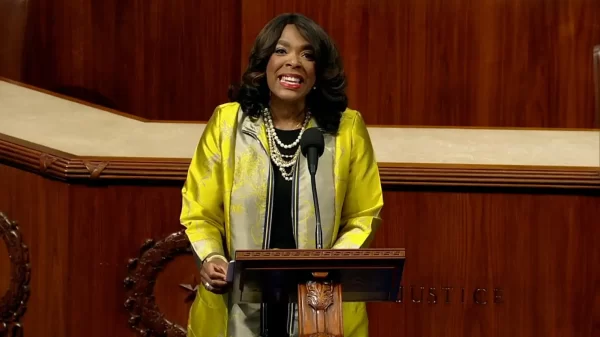Congressmembers Terri Sewell, Alabama, and Tom Reed, R-New York, introduced the New Markets Stabilization Act this week. The bipartisan legislation will preserve access to the New Markets Tax Credit for underserved communities and ensure the credit continues to spur economic revitalization as the COVID-19 pandemic and economic crisis continues.
“Historically underserved communities have faced tremendous economic hardship this year because of the coronavirus pandemic,” Sewell said. “As the economic crisis continues, it’s critical that we expand the New Markets Tax Credits to help ensure our rural and underserved communities are not left behind.”
The New Markets Stabilization Act expands the credit and improves market efficiency and liquidity, which will facilitate additional investments in local businesses and community development projects, Sewell said.
“Rural and persistent poverty areas have been hit especially hard by the COVID-19 pandemic and, now more than ever, it’s critical that we incentivize investment in our communities that are struggling to hang on,” the congresswoman said. “The NMTC has a proven track record of creating jobs and opportunities in the 7th Congressional District, and I’m proud to introduce this bipartisan bill to help ensure the credit can be utilized in our communities’ economic recovery.”
COVID-19 has impacted every corner of our economy, especially traditionally underserved communities and the financial organizations that support them, Reed said.
“Given the critical role New Market Tax Credits can play in driving economic recovery and reducing poverty, it is only fair that we move to stabilize the program and provide investors with the additional flexibility they need to further incentivize emergency relief initiatives,” Reed said.
New Markets Tax Credit Coalition spokesperson Bob Rapoza said: “The bipartisan legislation introduced by Rep. Sewell authorizes significant new assistance through the New Markets Tax Credit (NMTC) to low-income communities that are often left out of the economic mainstream and are now coping with the health and economic consequences of the pandemic. From rural communities and urban neighborhoods, and everywhere in between, the additional $4 billion in NMTC authority championed by Congresswoman Sewell in this pandemic relief legislation, including provisions to make it easier to serve businesses and projects hardest hit in this economic and health crisis, will help provide the investment and patient capital needed to rebuild and grow.”
To be eligible for NMTC financing, businesses being financed must, at a minimum, be located in designated low-income communities, defined by U.S. Census data as census tracts with a poverty rate of at least 20 percent, or with median family incomes that do not exceed 80 percent of area median income.
Specifically, the New Markets Stabilization Act will increase the NMTC allocation by $3.5 billion over four years, allow investors to carryback these credits for five years, exempt the NMTC from the 75 percent General Business Credit limitation, provide relief from certain debt modification rules for NMTC issuers and borrowers, and permanently exempt the credit from the alternative minimum tax.
These provisions will ensure investor liquidity and strong demand for New Markets Tax Credits throughout our economic recovery, ultimately increasing investment and maximizing the benefit to low-income communities. Sewell and Reed have also introduced legislation to make the NMTC permanent.
Without congressional action, the NMTC will expire on Dec. 31, 2020.
Sewell’s office said that Alabama’s 7th Congressional District has experienced the power of the NMTC firsthand. In Aliceville, the credit helped transform the Huyck Felt brick plant into a new wood pellet manufacturing facility, creating 275 jobs. In Selma, the program helped create 55 jobs at a biomass processing facility.
Sewell was recently elected to her sixth term representing Alabama’s 7th Congressional District.




















































